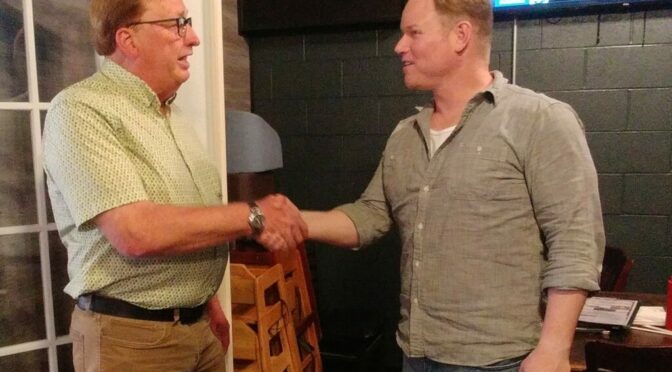
Keys to the Kingdom
When our children were young, I’d have fun playing hide-and-seek with them in the house. Every time Mariam or Aaron was “it,” they could never find me. I always hid in the bathtub behind the shower curtain; they never thought to look for me there. The kids were in the same room, just a few inches from me, but they never found me because their “seeking” was superficial. They eventually got old enough that we stopped playing this game, and that’s when I told them my secret hiding place.
Do you ever get the feeling God is hiding from you? If you do, it’s probably because you’re focusing on the cares and frustrations of life instead of looking for God in your daily routine. I assure you that God’s not hiding. The Bible tells us that, “I will find the Lord when I seek Him with all my heart and with all my soul” (Deuteronomy 4:29 NKJV).
Feelings are fickle — you can’t trust them. You or someone you know may have said, “Nobody loves or cares about me. I just feel rejected and worthless.” That’s an example of feelings. You may feel that way, but it’s a lie from the devil. Reject the feeling and accept the truth. God loves you as much as He loves Jesus. Is that a new concept to you? It might be new to you, but it’s as old as Jesus’ prayer for believers in the Garden of Gethsemane: “…I am in them and You are in Me. May they experience such perfect unity that the world will know that You sent Me and that You love them as much as You love Me” (John 17:23 NLT).
God isn’t hiding, He’s right out in the open all the time. Believers who seek Him will find Him. Evidently, this is a daily process and not just something we do once. Jesus said He would not abandon us as orphans, He (Holy Spirit) will come to us. We need to make sure we’re not acting like unbelievers who aren’t even looking for Him and don’t recognize Him when they do see Him.
There’s great reward for seeking God. “And don’t be concerned about what to eat and what to drink. Don’t worry about such things. These things dominate the thoughts of unbelievers all over the world, but your Father already knows your needs. Seek the Kingdom of God above all else, and He will give you everything you need” (Luke 12:29-31 NLT).
Stuart Hamblen composed a song in 1959 and the lyrics of the refrain are: “How big is God, how big and wide His vast domain; To try and tell, these lips can only start. He‘s big enough to rule His mighty universe; Yet small enough to live within my heart.” On a dark night, we can look up and see the stars and find God. Why? Because the scripture tells us that God has given all the countless stars names (Isaiah 40:26). You can find God every time you comb your hair. Why? Because God has numbered the hairs on your head (Luke 12:7).
The Key: Seek [look for, search, pursue, find] God everyday as if your life depended on it…because it does.







